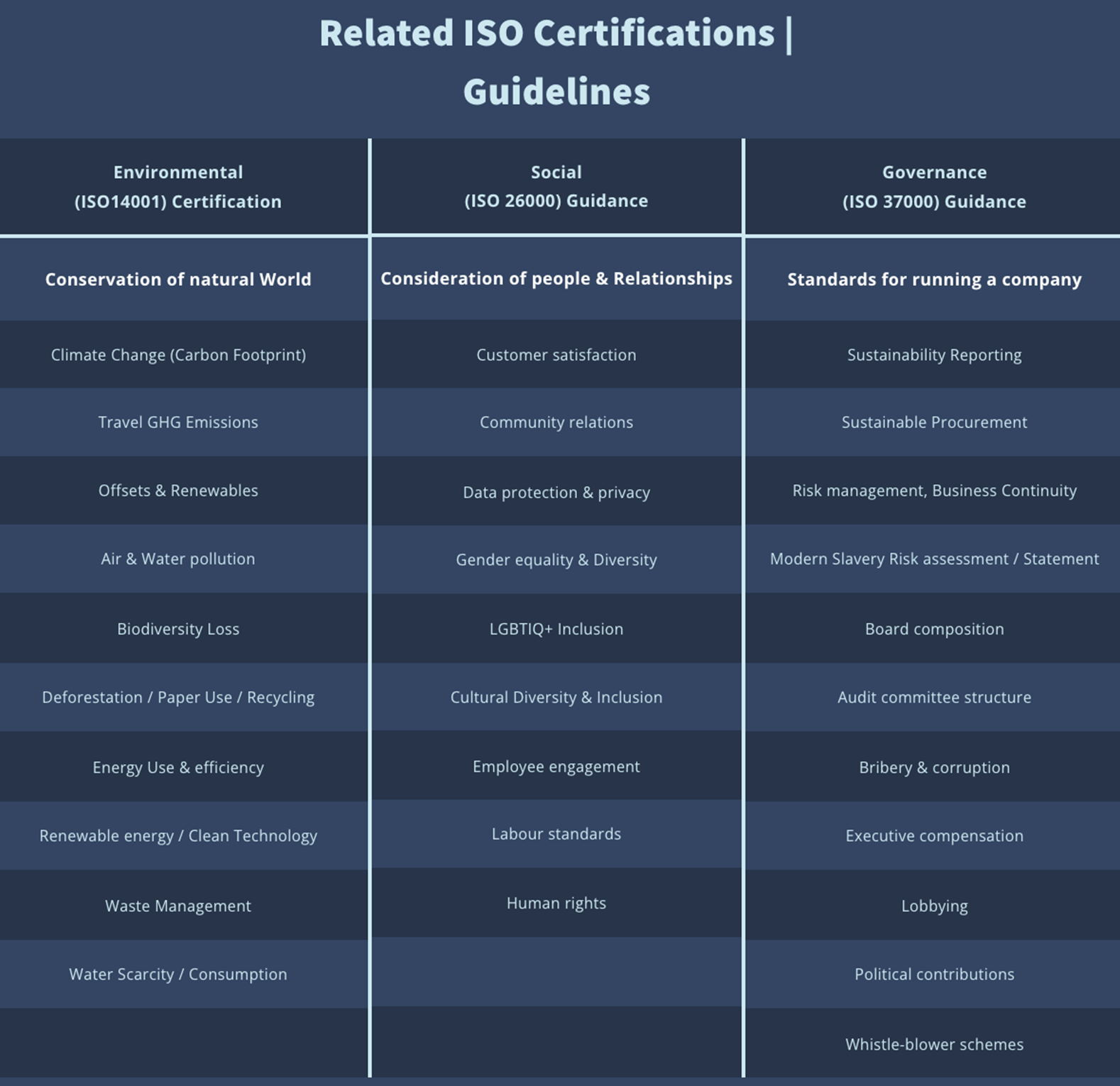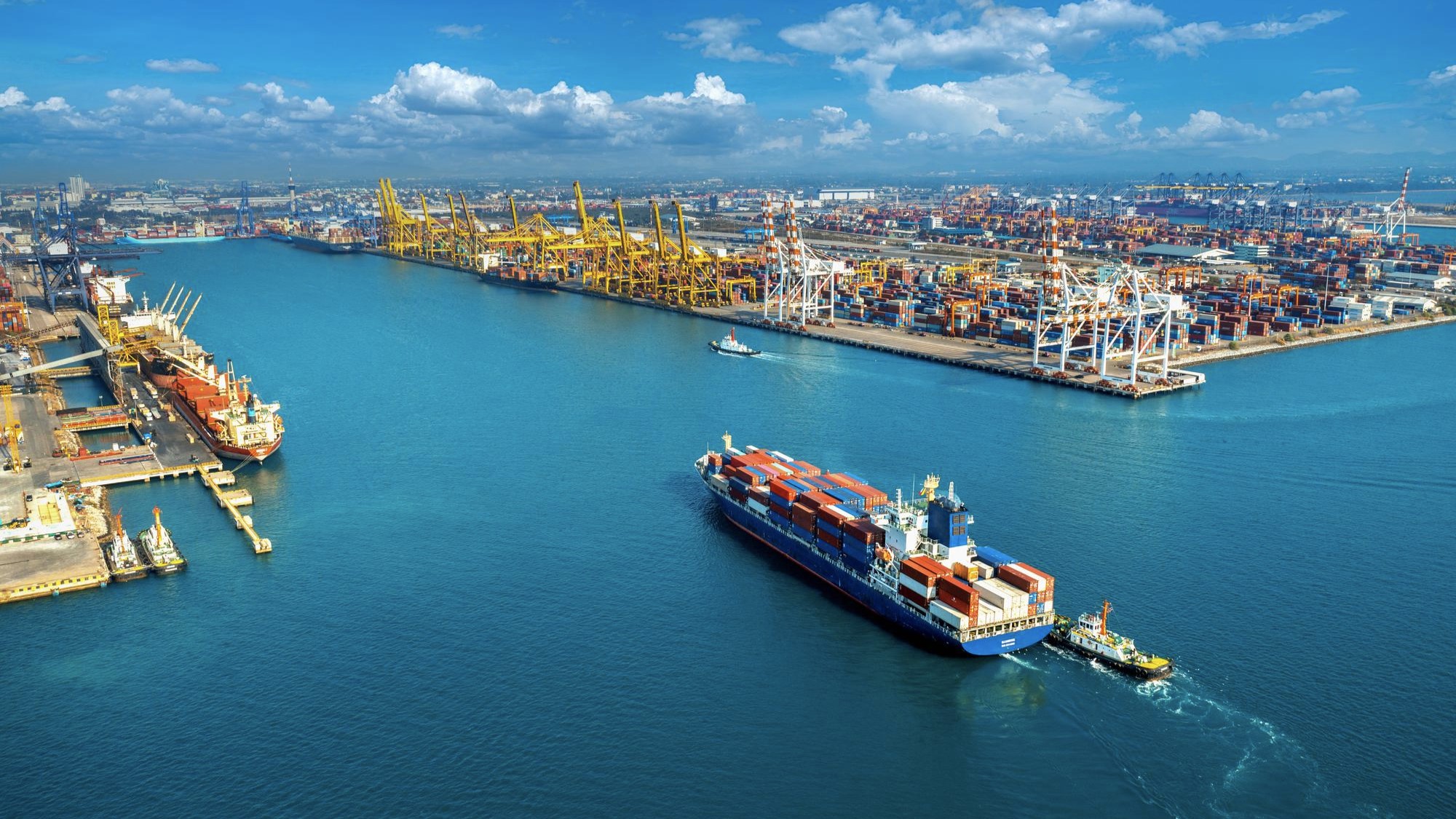At Numeric Eight, we understand the increasing importance of Environmental, Social, and Governance (ESG) considerations in today's business landscape. We are committed to supporting businesses in their journey towards sustainable practices and ethical accountability. In line with this commitment, I had the privilege of sitting down with Stephen Early, the Founder of Trace Supply Chain Intelligence (Trace SCI), to delve into his background, motivations, and insights on simplifying regulatory compliance and social and ethical accountability in the supply chain. Welcome to Part 1 of our three-part series.
To start, could you tell us a bit about your background and what motivated you to establish Trace SCI?
Stephen Early (SE): Prior to starting my supply chain (SC) journey I worked for several years in Photography, TV and Film production with crews visiting Cape Town from Canada & Europe. This gave me a solid foundation as to what can be achieved when you combine a vision, with planning and engaging directly the experts at each stage of production. Even when your vision is manifested in a foreign country and may take years to achieve.
I started my tangible product supply chain journey in Cape Town in the 90s at Danco Clothing, where I gained invaluable experience across the materials supply chain used in garment and accessory manufacturing. These would vary from steel work machine shops, to wash houses and embroidery and printing plants, extrusion moulding for buttons and sock knitting operations. Never a dull day in production.
I have continued to apply these learnings over the course of 30+ years in manufacturing across three continents, beyond garment manufacturing. Still today I recognise the correlation between quality, delivery, and reliable suppliers with strong planning and accreditation processes in place, today’s version of Corporate Social Responsibility (CSR) and Environmental Social Governance (ESG). Engaging with the source of production is a crucial requirement to achieving consistent outcomes. When developing a SC, recognising intermediaries that add no value should always be a consideration. The realisation that organisations that stand the test of time are built on a geographically diverse supply chain, sound business case with Medium and Long term goals and direct engagement and understanding of the challenges in their supply chains.
Combining long term goals with immediate response actions along with my passion for doing things the right way that sustain the test of time compliance and ethical practices, led me to establish Trace SCI.
Let's dive into the concept of ESG (Environmental, Social, and Governance). For those who may not be familiar, could you explain what ESG encompasses and why it has become increasingly important for businesses to consider?
SE: ESG stands for Environmental, Social, and Governance. However, it has become an acronym that encompasses multiple requirements, often leaving CEOs unsure of where to begin. To simplify, businesses need to consider the following aspects:

Environmental factors encompass a company's impact on the environment. This includes assessing carbon emissions, energy consumption, waste management practices, and efforts to mitigate environmental risks. By mapping their current supply chains and measuring emissions in relation to the table above, businesses can gain insights into their environmental footprint and identify areas for improvement.
Social factors revolve around a company's relationships with its employees, customers, suppliers, and the communities it operates in. It involves evaluating factors such as labour practices, employee diversity and inclusion, product safety, customer satisfaction, and community engagement. By addressing these aspects, businesses can foster positive social impacts and build stronger relationships with stakeholders.
Governance factors deal with a company's internal structure, policies, and practices. This includes the composition of the board of directors, executive compensation, shareholder rights, ethical business conduct, and risk management procedures. By requiring CSR accreditation from suppliers and incorporating unannounced audits and pre-shipment inspections as prerequisites to payment, businesses can ensure higher standards of governance throughout their supply chains.
ESG has become increasingly important for businesses due to several reasons. First, there is growing recognition of the need to address environmental issues and minimise the negative impact of business operations on the planet. Customers, investors, and regulators are placing greater emphasis on sustainability and responsible business practices.
Second, there is a heightened focus on social and ethical considerations. Stakeholders expect businesses to prioritise fair labour practices, human rights, diversity and inclusion, and contribute positively to the communities in which they operate.
Finally, good governance is essential for building trust and ensuring long-term success. Transparent and accountable governance practices help companies manage risks, prevent misconduct, and make informed decisions that benefit all stakeholders.
By considering ESG factors, businesses can demonstrate their commitment to sustainability, ethical practices, and long-term value creation. It also helps them manage risks, attract investment, enhance their reputation, and foster a positive impact on society and the environment.
As we explore the complexities of supply chains, a significant factor to consider is the changing Chinese demographics, with an ageing population and a shrinking workforce. How do you perceive these demographic shifts impacting the manufacturing sector and supply chains? Are there specific challenges or opportunities arising from these changes?
SE: While the changing demographics in China pose certain considerations, it's important to note that China has a network of associated industries that support finished products, which many potential alternative country sources cannot provide. Vietnam, for instance, is positioned to take up manufacturing loads that are not overly capital- and skills-intensive. Currently, there is a surplus of capacity across multiple sectors in China. However, the problem arises when countries fail to re-engage these capacities, leading to supply chain shortages and inflationary pricing. Opportunities lie in countries like Vietnam, Indonesia, Cambodia, Bangladesh, Pakistan, and India, where low-skill workforces and diversification of sources can be beneficial. Challenges include high minimum order quantities (MOQ) in emerging countries, lower quality workmanship, and potential price increases due to productivity issues and political influences such as Uyghur forced labour in Xinjiang, China. Another consideration is consistency of energy supply and internal transport systems. Most if not ALL alternative source countries face all of these issues on a regular basis.
Stephen, I want to express my sincere appreciation for your time and expertise in discussing the social and ethical challenges in supply chains. Your insights have provided valuable perspectives on ESG considerations and the impact of changing demographics on supply chains. Stay tuned for Part 2 of our series, where we will delve further into the challenges of traceability and transparency, as well as the integration of ESG principles into business operations.
Author Bio
Andy Rootes is a Director of Numeric Eight and is responsible for growing both Numeric Eight’s client base and developing strategic business partnerships.
Before joining Numeric Eight, Andy had many years’ experience of managing sales and partner/reseller organisations in the software technology sector in the UK, Australia, NZ and more recently across the Asia Pacific Region. He is an avid networker, focused on excellent outcomes for clients and partners alike.
About Trace Supply Chain Intelligence / Stephen Early
With a focus on turning compliance into a profit centre rather than a cost centre, Trace SCI offers supply chain intelligence that provides traceability, transparency of suppliers, and establishes direct-to-source relationships to achieve significant savings. By going beyond compliance, Trace SCI helps businesses meet short-term obligations like the Modern Slavery Act 2018 and achieve long-term Environmental Social Governance (ESG) and Corporate Social Responsibility (CSR) outcomes.
Trace SCI works with companies to assess their supply chain diversification potential and provide legacy frameworks related to risk and supply chain diversification, in conjunction with ongoing product quality and supplier performance.
Connect with Stephen on LinkedIn.

